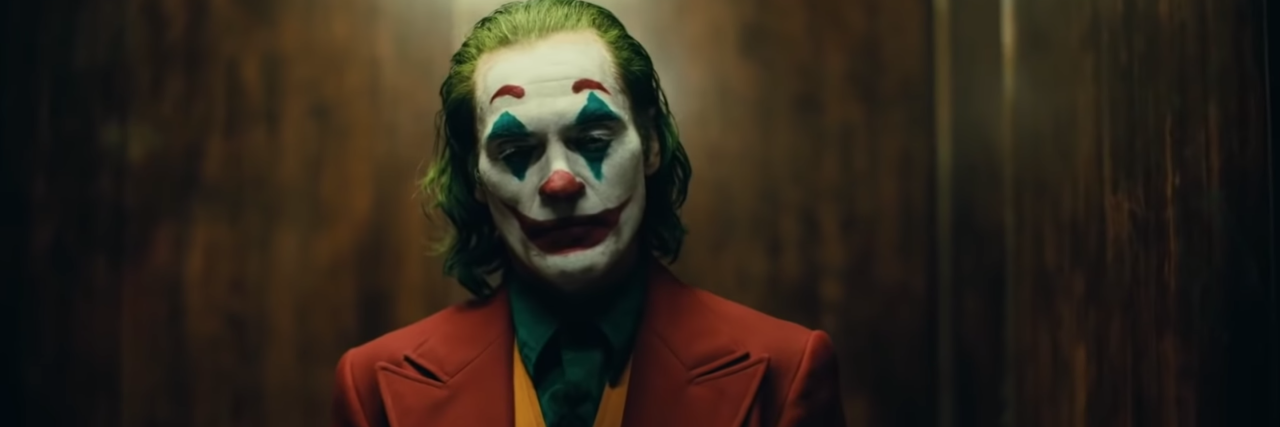We Need to Talk About How ‘Joker’ Treats Mental Illness and Violence
I’m probably the last person you would expect to see “Joker.” I’ve never cared for R-rated movies and violence. I am the mother of someone who battles a significant mental illness and I anticipated, based on the trailers, that this would rip me apart. So, I braced myself as I walked into the theater alone with pen and notebook in hand. Admittedly, my heart was racing a bit.
If you’re looking for a lethargic experience in a movie, full warning: this isn’t it. I read reviews prior to going, where people expressed how difficult it was to watch, so I assumed it was due to the brutal violence. Honestly, I’ve seen worse violence on television, although admittedly I had to close my eyes in one particularly vicious scene.
The director is confronting us with something and it’s not politics, violence or even “incels.” This movie is brilliantly about mental illness. We have become so accustomed to mediocre, predictable, preachy movies that we don’t even recognize art when we see it. “Joker” embodies the latter.
I’ve heard from other family members of people who have serious mental illness that they saw their loved one in the main character, Arthur Fleck. My friend, whose brother has schizophrenia, wrote this to me: “The theater was dead quiet the whole time, I had the impression most everyone there was in a sense watching a friend or family member struggle with mental illness. I certainly felt that way; it was like they followed my brother around for ideas. It was hard to watch and mesmerizing at the same time.”
The movie never discloses Arthur’s diagnosis, but we are drawn into the reality of his world that is fraught with misunderstanding, neglect, abuse and cruelty. Throughout, “Joker” is laced with cleverly placed dialogue and moments that capture the futility someone in his predicament faces in gaining any semblance of empathy or reasonable assistance. It was in those moments I wanted to pause the movie, take screenshots, and shout, “This! This!”
For quite a few years now, I’ve been thrust into the mental illness advocacy world due to my own son’s experience. I’ve met countless people and stories that mirror Arthur Fleck’s. It’s an invisible world, noticed only by the outside when violence strikes. I don’t think “Joker” is about violent revenge; I think it’s telling the true and not-so-tall tale of what many people live with across this nation every day. I dare say, it’s trying to get our attention and I think it works.
As a parent, I struggle with the gut-wrenching decisions I must make about what I should and shouldn’t share publicly about my son. He cannot fully advocate for himself. In a haunting way, Arthur Fleck has done what is so beyond reach for most family members; he’s told his own story.
Now some will argue this movie portrays mental illness in a twisted light, no doubt. My own son expressed this after seeing a television ad. Advocates argue back and forth about the correlations to violence and mental illness. I don’t think it was by accident that Arthur Fleck’s descent into violence occurs in response to a co-worker’s misguided decision to give him a gun for self-defense, followed by him being denied further medications and therapy.
This is the place where others need to step in and help. “Joker” begs the uncomfortable question, “who was there for Arthur Fleck?”
The longer we grapple with the unpleasantness of this film, the more we must acknowledge that we’ve relegated people who live with uncomfortable and complex issues to the fringes of our society, and we are paying an ever-so-dear price.
To paraphrase “Joker,” we care more about the killing of three Wall Street executives and then step over the Arthur Flecks every day on our streets. Let this movie hit you square the way it was meant to. Don’t try to add your own narrative and make it fit. In the words of Flannery O’Connor, “The ‘unsentimental eye’ of faith in God’s goodness in the face of horrors is paradoxically the tenderest eye.” Arthur Fleck and his mother live in every city and community across this nation. “Joker” beckons us to choose the unsentimental and tender eye.
A version of this article was previously published here.

